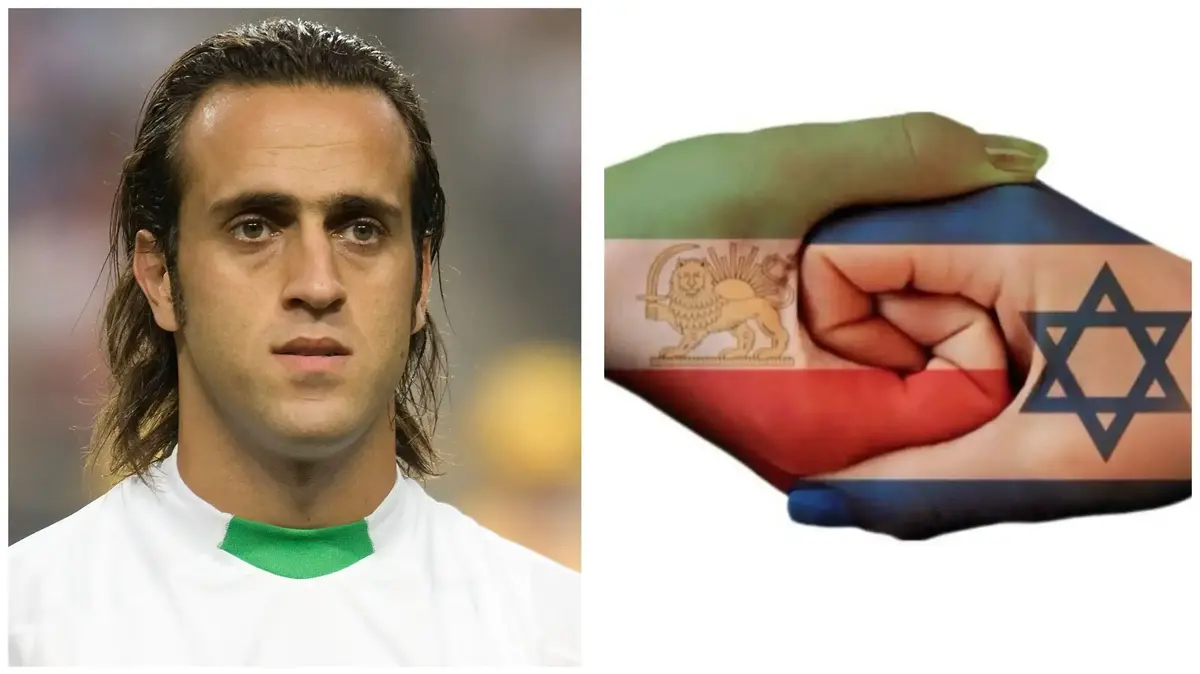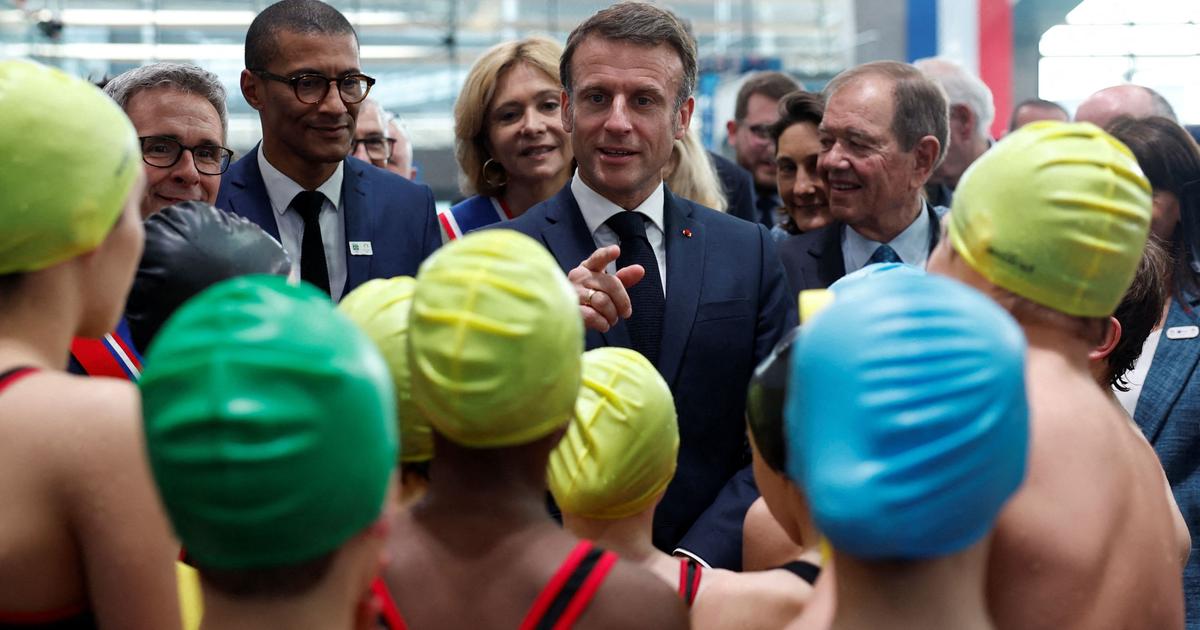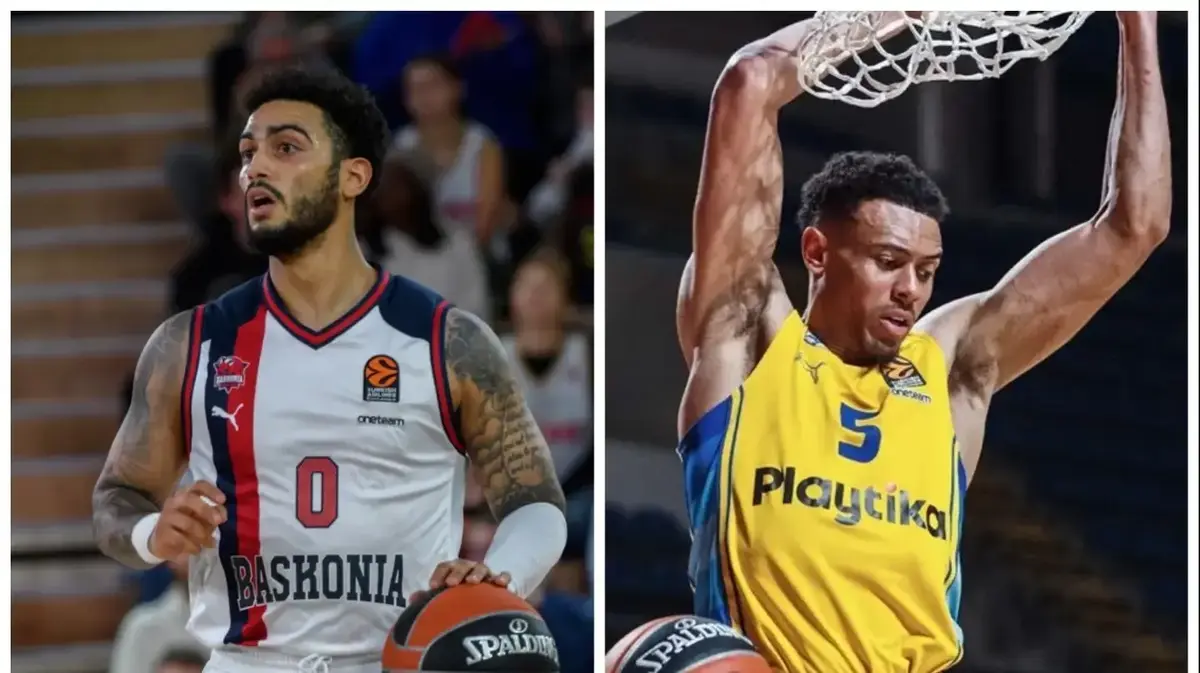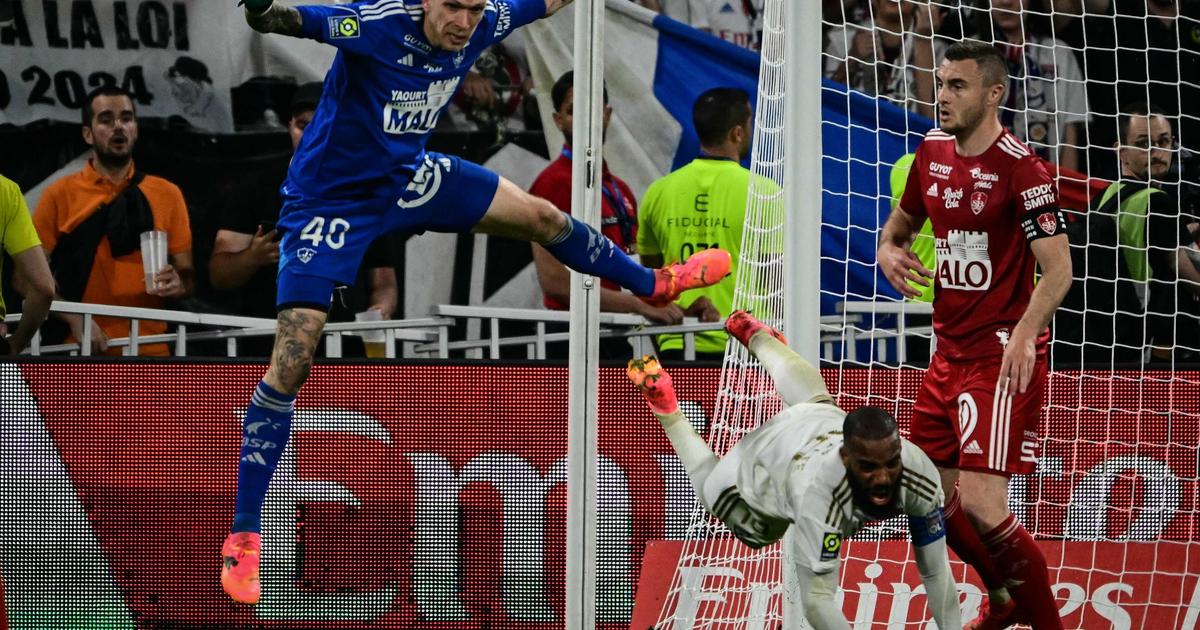Debut and farewell in one: Only players who were allowed to wear the DFB jersey exactly once made it into our photo story.
Munich - Lothar Matthäus has made it a record national player for the DFB with 150 international matches.
However, not everyone can have such a legendary career.
Again and again, the national coaches use less important games to test new players and see how they function in the team.
Many players make their big international debut - but are not allowed to play a second game due to injuries or other reasons.
The big photo story shows the "mayflies" of the DFB.
Karlheinz Pflipsen
+
© imago images
In the U-15 to the U-21 national team of the DFB,
Karlheinz "Kalla" Pflipsen played
over 40 international matches for Germany.
However, he was only used once under national coach Berti Vogts in an A international match: in the context of the US Cup, a four-nation tournament in the USA, Pflipsen was at least a substitute on June 13, 1993 in Chicago the lot.
Later, "Kalla" only played in the Bundesliga: after a successful time at Alemannia Aachen, he moved to TSV 1860 Munich in 2004.
Rene Schneider
+
© imago images
After his first successes in the top division of GDR football,
Rene Schneider played
for BSV Brandenburg, Hansa Rostock, Borussia Dortmund, Hamburger SV and VfL Osnabrück.
On December 15, 1995, the then Rostock competed in the international match of the German national team against South Africa.
National coach Berti Vogts then saw him for the squad for the European Championships in 1996, where he was never to be used.
Martin Max
+
© imago images
Martin Max
- "Bundesliga top scorer" - came on as a substitute for Torsten Frings on April 17, 2002 in the 1-0 defeat by the DFB against Argentina eight minutes before the end.
Team boss Rudi Völler then didn't nominate him for the World Cup.
In the 2003/2004 season, Max was once again the most successful German attacker, which brought him back into conversation for the 2004 European Championships - but Max refused a comeback for Portugal, as Völler had not considered him in 2002.
Ridle Baku
+
© Darius Simka / imago images
Also
messenger Nzuzi "Ridle" Baku
is one of the "mayfly" in the German national team - at least yet, because the newcomer has plenty of time to further hone his career.
So far, the promising youngster from VfL Wolfsburg has only played one game with the national team: On November 8, 2020, national coach Joachim Löw Baku subsequently appointed to the extended squad of the senior national team for a friendly game against the Czech Republic - here he celebrated for a few days later made its debut on November 11th.
Bernd Martin
+
© imago images
At VfB Stuttgart,
things went like clockwork
for
Bernd Martin
for years - the defender also cut a good figure in the B national team.
Nevertheless, he is considered the German national player with the shortest playing time: Martin made his debut in an A international match on May 2, 1979 in the 88th minute of a European Championship qualifier.
In the international match on October 17, he was unable to play again, having broken both his shin and ankle in the Bundesliga.
Marco Reich
+
© imago images
From top talent to transfer flop:
Marco Reich moved
from 1. FC Kaiserslautern to 1. FC Köln in 2001
for three million euros,
but was unable to build on his earlier successes there.
Before that, things didn't go well for him in the national team either - although Reich was considered to be the great hope of German football alongside Michael Ballack.
His first appearance was also his last: On February 9, 1999, he played in Miami under Erich Ribbeck in a 3: 3 against Colombia for 79 minutes for the German national team.
Ferdinand Keller
+
© imago images
Ferdinand Keller
(left in the picture next to Felix Magath)
played as a striker
for TSV 1860 Munich, Hannover 96 and Hamburger SV.
He scored a total of 57 goals in the 1st and 52 goals in the 2nd Bundesliga.
After Gerd Müller's resignation, Keller was appointed to the B national team of the DFB for the first time in March 1975: On September 2, the A national coach convinced with one goal that he let him join the A troop in Vienna.
So Keller made his debut against Austria a day later - if only for 20 minutes.
Sebastian Jung
+
© Darius Simka / imago iamges
Sebastian Jung
went from youth
to the first team at Eintracht Frankfurt.
On November 11, 2012, the defender of national coach Joachim Loew was nominated for the test match of the German national team against the Netherlands, but was not used.
It was not until two years later that Jung made his debut on May 13, 2014 in a friendly against the Polish team.
The Frankfurters were still proud, for the first time since 1999 a Eintracht player played with him in the German national team.
Paul Steiner
+
© imago images
Paul Steiner
has only played a single international match, but can still call himself world champion forever.
At the 1990 World Cup he was in the squad, but was not used.
He made his international debut shortly before the tournament in a friendly against Denmark, which was won 1-0.
Rudolf Steiner
+
© Werek / imago images
Paul Steiner and
Rudolf Steiner are
not only connected by their last name.
Both are also “one-time flies” when it comes to the national team.
As with his namesake, Rudolf Steiner's debut in the A-squad also marked the beginning and end of a short liaison.
National coach Sepp Herberger brought the 1860 defender on board on May 12, 1964 for the game against Scotland.
Even at the international match on June 7, 1964, Steiner should be part of the German squad against Finland, but then fell out due to an injury.
Tobias Weis
+
© Robin Rudel
In 2008 national coach Joachim Löw nominated
Tobias Weis
for the German national team.
In the friendly against England, however, this was not used.
In 2009 Weis also took part in the national team's trip to Asia, but did not get a chance in the game against China in Shanghai.
Four days later he was finally redeemed and was allowed to play for Thomas Hitzelsperger against the United Arab Emirates in Dubai in the 66th minute - but this one international match was also left.
Helmut Roleder
+
© imago images
Goalkeeper
Helmut Roleder
played for VfB Stuttgart for 17 years and became German champion in 1984.
He entered international fields at an early age, with his first international match with the national school team taking place on April 29, 1969.
At the age of 17, Roleder made his debut in the DFB youth team.
Between 1980 and 1981 he then played four international matches for the B national team.
His only A international game, however, was the game against the USSR selection on March 28, 1984, where he came on at halftime for regular goalkeeper Toni Schumacher.
Kurt Niedermayer
+
© Ulmer / Cremer / imago images
Kurt Niedermayer
fared similar to his VfB colleague Helmut Roleder: Although he played a total of five times in a row for the DFB youth team and three times for the national B team, he did not make it after his first (and only) A international match Keep National Eleven.
In its debut game on October 11, 1980, the German national team in Eindhoven not only separated from the Dutch - but also from Niedermayer.
At the Mundialito at the turn of 1980/81, the defender still took part, but was no longer used.
Arno Steffenhagen
+
© imago images
There
should have been arguments again and again
between
Arno Steffenhagen
(left in the picture) and Hertha coach Helmut Kronsbein, as the latter did not like long-haired players.
Kronsbein even sent Steffenhagen back on the bus once for an away game so that his hair could be cut there.
Apparently national coach Helmut Schön (center) had no problem with the long hairstyles of Steffenhagen and Dieter Zembskis (right in the picture).
Nevertheless: For Steffenhagen, after his first international match on September 8, 1971, the DFB-Elf was over again.
Marvin Compper
+
© Thomas Thienel / imago images
Marvin Compper
is also one of the “mayflies” among the German national players: He played his only game on November 19, 2008 in Berlin - in a 2-1 defeat in a friendly against England.
However, he also holds a far more positive record: with his 77 minutes of play in that match, he was the first German national player for TSG Hoffenheim.
Bernd Hobsch
+
© imago images
Between April 1988 and November 1989,
Bernd Hobsch
completed
eleven international matches in the GDR U-21 team, where he scored a total of four goals.
For the DFB national team, however, he only appeared once: On September 22, 1993, he was substituted on in the friendly match against Tunisia in the 77th minute.
Things went well in the Bundesliga: Hobsch was German champion with Werder Bremen in the same year and DFB Cup winner in 1994.
Andre Hahn
+
© Peter Fastl / imago images
On February 28, 2014
Andre Hahn
- he is under contract with FC Augsburg in the 2020/2021 season - was appointed to the German senior team for the friendly against Chile.
On March 5th, however, it was not used.
The same happened to him on May 13, 2014 in a charity game against Poland, after he had been nominated for the provisional squad for the 2014 World Cup.
It wasn't until the second half that Hahn's wait on the bench came to an end, so that he could finally play his first international match - a day later, however, he was replaced in the World Cup squad by Christoph Kramer.
Zoltan Sebescen
+
© imago images
With
Zoltan Sebescen
, a Wolfsburg was called up for the first time in the German national team in 2000.
But there was a catch: national coach Erich Ribbeck wanted the previously largely unknown Sebescen to play in an unfamiliar defensive position - and that in a game against a top team like the Netherlands.
On February 23, 2000 one thing led to another: the Germans conceded two goals in the first half - and unfortunately debutante Sebescen was involved in both of them.
Peter Dietrich
+
© imago images
After a back operation,
Peter Dietrich
started
again in 1970 and won the first German championship with Mönchengladbach.
National coach Helmut Schön did not leave this achievement unimpressed, so that he invited Dietrich to the final course of the national team for the soccer World Cup 1970 in Mexico.
In the preparatory international match against Ireland, the Gladbacher made his debut on May 9th in Berlin and was henceforth part of the World Cup squad.
However, he didn't get to work, as he injured his ankle shortly before during training.
Oliver Reck
+
© imago images
For Kickers Offenbach, Werder Bremen and FC Schalke 04,
Oliver Reck
played a total of 471 Bundesliga games as a goalkeeper from 1983 to 2003.
As early as 1988 he took part in the Olympic Games in Seoul with the German Olympic team.
The Germans won bronze, but horizontal bar was not used.
The same happened to him in 1996 at the European Football Championship in England.
He was only allowed to play as a goalkeeper for the national team once: In the 9-1 win against Liechtenstein on June 4, 1996. Reck now works as a coach.
Thomas Ritter
+
© imago images
In the top division of GDR football, Dresden's
Thomas Ritter
made his debut in the 1986/87 season.
In the victory against BSG Energie Cottbus, the newcomer came on for Reinhard Häfner.
In 1993, however, the defender only played once in the German national team: In the 5-0 win against Uruguay, Ritter was substituted on for Stefan Effenberg in the 87th minute in the Karlsruhe Wildparkstadion shortly before the final whistle.
Only Bernd Martin from VfB Stuttgart undercut these four minutes of fame and honor in the national team with three minutes in 1979.
Hanno Balitsch
+
© Martin Hoffmann / imago images
Hanno Balitsch
played through the DFB youth up to the U-21 national team.
In the latter, he even acted as captain in 20 games in 2004.
In the senior national team, Balitsch could not make a name for himself as he only played once in February 2003 in a friendly between Germany and Spain.
Substituted for Frank Baumann in the 62nd minute, the game in Palma was lost 3-1.
After his active career, the ex-national player is now on the field as a football expert.
Bernd Gersdorff
+
© imago images
Bernd Gersdorff is
one of the “mayflies” among the members of the German national team
: On September 3, 1975, he and his future BSC teammate Erich Beer enjoyed a 2-0 win over Austria.
For Gersdorff, however, this remained the only A international match, even if he was able to survive a few weeks later with the B national team against the Romanian selection.
Dietmar Beiersdorfer
+
© imago images
The example of
Dietmar Beiersdorfer
shows that in order to achieve a reputation and a name in the world of football, you don't necessarily have to wear the national team jersey for very long.
Today's football functionary only appeared once for the DFB-Elf: On May 1, 1991, the then HSV striker played in a qualifying game for the 1992 European Championship against Belgium in the Lower Saxony Stadium.
Manfred Bockenfeld
+
© imago images
Under coach Jörg Berger,
Manfred Bockenfeld was
in top form at Fortuna Düsseldorf, so that national coach Jupp Derwall became aware of the successful right-back.
In February 1984 Bockenfeld joined the national team in a preparation game for the European Football Championship 1984 against Bulgaria.
This excursion was unique in his career, but Bockenfeld won the European Cup with Werder Bremen in 1992 and the German championship in 1993.
Oliver Sorg
+
© Zink / imago images
Even
Oliver Sorg
was allowed only once in the jersey of the national team on the lawn: On May 8, 2014, he was appointed for the friendly against Poland for the first time in the squad of the German senior team, but completed just this one game in Hamburg.
Heiko Scholz
+
© imago images
Heiko Scholz was accepted
into the squad of the GDR youth national team
as early as 1986
- on April 29, 1987, he was appointed to the senior national team.
In the European Championship qualifier against the Soviet Union, the attacking player was substituted on and played a total of seven international matches with the A selection until 1990.
After the fall of the Wall he only stepped onto the pitch for the German national team - on October 14, 1992 in a match against Mexico.
Joachim Bäse
+
© imago images
Joachim Bäse
played for Eintracht Braunschweig from 1959 to 1973, with whom he also became German champions as captain in 1967.
With his team, he even made it to the quarter-finals in the European Cup.
Although Bäse had a real footballing career at Eintracht, he did not make several appearances in the German national team.
On May 8, 1968 he appeared in their 329th game, an international match against Wales, in Cardiff.
It should be his only match with the DFB-Elf.
Thomas Kroth
+
© imago images
Today he is a player's agent and president of the
German Football Player's Association
- before that,
Thomas Kroth
played in the Bundesliga for 14 years and won the DFB Cup with 1. FC Köln, HSV and Borussia Dortmund.
Although Kroth won the European runner-up in 1982 with the U-21 selection, he only appeared on the field once for the senior national team in 1985.
Klaus "Caesar" miracle
+
© imago images
Although
Klaus "Caesar" Wunder
can look back on considerable successes in the national team, he was only a "flash in the pan" with the big players: Between 1970 and 1972 he played a total of 20 games for the amateur national team, on September 7, 1971 even scored his first two goals in the national jersey.
He also achieved considerable success in the B national team and the U-23 selection.
With the senior national team, Wunder won 1-0 against the Soviet Union on September 5, 1973 - when he came on for Jurgen Graboswi in the 64th minute.
Mark Uth
+
© Guido Kirchner / dpa
Mark Uth
began his professional career
with the Dutch first division club SC Heerenveen.
The striker moved from TSG 1899 Hoffenheim for the 2018/2019 season to FC Schalke 04, who loaned him to 1. FC Köln during the 2019/2020 winter break.
In 2018 he was nominated by national coach Joachim Löw for the A-team for the Nations League - just a few days later, Uth made his national team debut against the Netherlands on October 13, 2018.
As an active player, he might be able to get rid of the reputation of the "one-day fly" ...
Bernd Nickel
+
© imago images
No other midfielder has scored more goals in the Bundesliga than
Bernd Nickel
.
He played 426 Bundesliga games for Eintracht Frankfurt and scored 141 goals - the team won the DFB Cup in 1974, 1975 and 1981 and the UEFA Cup in 1980.
On his debut in the B national team against the Luxembourg A national team, Nickel scored two goals, which at the end of 1974 probably helped him make his debut in the German A national team.
Nonetheless, his first game here - the European Championship qualification against Malta on December 22nd - was also his last.
Thomas Wolter
+
© imago images
Thomas Wolter
made his professional debut
on November 24, 1984 at Werder Bremen.
In the match against Eintracht Braunschweig, the defensive player came on for the first time in the 82nd minute - and he remained loyal to the club.
Under coach Otto Rehhagel, he celebrated the European Cup victory against AS Monaco on May 6, 1992, but played only one international match with the German national team in the same year.
In the friendly against Brazil on December 16, 1992, Wolter was in the DFB's starting line-up until the 59th minute.
Bernd Rupp
+
© Horstmüller / imago images
Bernd Rupp
played from 1965 to 1974 as a striker for Borussia Mönchengladbach *, Werder Bremen and 1. FC Köln and scored a total of 119 goals in 274 Bundesliga games.
The fact that national coach Helmut Schön was on the lookout for some new players after the World Cup benefited the young talent.
On October 12, 1966, Rupp landed in his first and last international match in the 85th minute of the game to make it 2-0 against Turkey.
In that game, Gerd Müller also made his debut in the national team ...
Dieter Brenninger
+
© Bernd Feil / imago images
Dieter played "Mucki" Brenninger
von for
almost ten years
1962 to 1971 with FC Bayern Munich (on the picture on the right, second from left: Franz Beckenbauer *), later with VfB Stuttgart.
Today Brenninger is considered a legend - even though he only appeared once for the German national team.
On May 10, 1969, Brenninger made his international debut in the qualifier for the 1970 World Cup against Austria.
Peter Pumm - actually a Bayern colleague, but also an opponent - knew "Mucki's" tactics well and makes it difficult for him.
National coach Helmut Schön would not let Brenninger compete in the future.
Rudolf "Rudi" Nafziger
+
© Horstmüller / imago images
The fate of being considered a “one-day fly” in the German national team not only overtook Bayern legend Brenninger (second from right), but also his team-mate
“Rudi” Nafziger
(left on the picture).
The “ball-skilled technician” was not only considered to be the first “beautiful guy in the Bundesliga”, but also stood out for his high hit rate with Brenninger, Rainer Ohlhauser and Gerd Müller (second and third from the left).
At the age of only 20 and shortly after the start of his first Bundesliga season, Nafziger was appointed to the senior national team by Helmut Schön in 1965 - but that had no future.
Rainer Ohlhauser
+
© Rust / imago images
After Brenninger (left in the picture) and Nafziger,
Rainer Ohlhauser
(right in the picture) is the third in the league: At Bayern Munich * and in the Bundesliga, things went more than smoothly for them - they wanted a regular place in the DFB-Elf do not work so well.
Ohlhauser was allowed to make his debut in Santiago de Chile on December 18, 1968 as part of a trip to South America for the senior national team, but never played again for the national team after losing 2-1.
Herbert Neumann
+
© Laci Perenyi / imago images
Herbert Neumann
was discovered in 1969 by the youth coach of 1. FC Köln * and played for the club until 1980.
The big breakthrough was still a long time coming, as Neumann repeatedly had to struggle with growth disorders and strains.
Together with Helmut Flohe, Neumann nevertheless formed the central axis of 1. FC Köln, which also made national coach Helmut Schön aware of the former youth national player for the 1978 World Cup.
Neumann made his debut in the same year in the 2-1 victory of the German national team against England - but it was only this game.
Theodor Redder
+
© imago images
BVB veteran
Theodor Redder
is also on the list of “mayflies” in the German national team: national coach Sepp Herberger nominated the Dortmund for his “farewell game” against Finland on June 7, 1964 in Helsinki.
But then it was over in the top national team for the Dortmund defender.
Christian Schreier
+
© Kicker / Liedel / imago images
Even
Christian Schreier
counts when it comes to national team to the "ephemera" (in the foreground): Only once he came in a friendly against Argentina for use in 1984 and secured - as well as team-mate Michael Frontzeck (back in the picture) - locally to another Jersey as an unforgettable souvenir.
From 1981 to 1992 Schreier played successfully in the German Bundesliga for VfL Bochum, Fortuna Düsseldorf * and Bayer 04 Leverkusen.
Diego Demme
+
© Christian Schroedter / imago images
Diego Demme supports
after stations
Arminia Bielefeld * and RB Leipzig * are currently under contract with SSC Napoli.
In 2017 Joachim Löw nominated the midfielder for the German national team: Not the regular players, but a prospective team of young players should start for the Confederations Cup.
In the qualifying game for the 2018 World Cup against San Marino, Demme was substituted on for the first time in the 78th minute of the game - due to back problems, the German-Italian could no longer participate in the actual tournament.
Jürgen Sundermann
+
© Rudel / imago images
Long before he earned the nickname “Wonder Man” as a VfB coach,
Jürgen Sundermann *
He made his debut in the German national team in March 1960 at the age of only 20 under national coach Sepp Herberger.
After two missions in the U-23, Sundermann's international career at the selection level was over.
Christian Günter
+
© Hahne / imago images
Christian Günter
has been under contract with Bundesliga club SC Freiburg * since 2012.
He made his debut for the U-20 national team on October 12, 2013 at the four-nation tournament in Gemert.
A year later, the U-21 nomination for two European Championship qualifiers followed.
The defender made his debut in the senior national team on May 13, 2014 in an international test match against Poland.
In the 81st minute, Günter came on for Oliver Sorg - for both of them it was known to be the first and last appearance in the DFB-Elf.
Frank Neubarth
+
© Uwe Schmidt / imago images
From 1982 to 1996
Frank Neubarth played
for Werder Bremen * - he entered international fields more often, but only once with the German national team.
While the offensive player was used in seven of a total of eight possible European Cup games and was able to score three goals, he was allowed to play against Argentina for barely ten minutes on April 2, 1988.
Only in the 81st minute did Franz Beckenbauer Neubarth replace Dieter Eckstein.
Volkmar Gross
+
© Werner Otto / imago images
As an original Berliner,
Volkmar Groß was signed
by Hertha BSC * for the 1967/68 season and won the Berlin championship right at the end of his first professional season and was promoted to the 1st Bundesliga.
In addition to Schalke, Groß later also signed football clubs from South Africa and the USA - but he only had one international deal with the German national team: the goalkeeper played his first and last international A match on November 22, 1970 in Piraeus against the Greece selection.
Matthias "Matthes" Mauritz
+
© Horstmüller / imago images
For "
Matthes" Mauritz
(on the right next to Jupp Derwall)
It must have been a really big day not only from a career point of view but also personally: At the age of 34 (!), the Düsseldorf coach was called up by national coach Sepp Herberger on May 20, 1959 for the international match of the German national team against Poland.
Together with Erich Juskowiak he defended Günter Sawitzki's goal on that day in Hamburg.
Herberger's appointment made Mauritz the oldest debutant in the history of the German national team.
Yannik Gerhardt
+
© Frank Hoermann / Sven Simon / imago images
From the youth of 1. FC Köln,
Yannik Gerhardt was accepted
into the professional squad by Peter Stöger for the 2013/2014 season.
The midfielder later moved to VfL Wolfsburg *, where he made his Bundesliga debut against FC Augsburg on August 27, 2016.
Then everything happened in quick succession, as Gerhardt was only allowed to play against Italy with the top DFB team in Milan on November 15, 2016.
Heinz "Heiner" Kördell
+
© Horstmüller / imago images
Once the son of a miner, today Schalke legend:
Heinz "Heiner" Kördell
(on the left in the picture next to Bernard Dietz) was signed by FC Schalke 04 * in 1956 and won the last German championship so far two years later as a midfielder on May 18, 1958 Club history.
Before he later moved to the league rivals Schwarz-Weiß Essen, Kördell played his first and last international A match on December 28, 1958, in the 2-1 defeat against Egypt.
This also makes him one of the “mayflies” among the DFB players.
* tz.de is part of the nationwide Ippen digital network.















